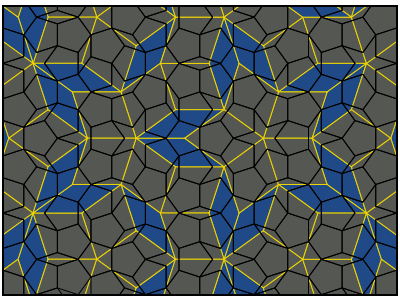Walter Gretzky is credited with the quote: “Go to where the puck is going, not where it has been.” Walter used socratic questioning to teach his son, Wayne, hockey strategy. Here’s the full context from Wayne’s perspective: Him: “Where do you skate?” Me: “To where the puck is going, not where it’s been.” Him: “Where’s the last place a guy looks before he passes it?” Me: “The guy he’s passing to.” Him: “Which means…” Me: “Get over there and intercept it.” Him: “If you get cut off, what are you gonna do?” Me: “Peel.” Him: “Which way?” Me: “Away from the guy, not towards him.” (Gretzy, Reilly, Gretzky: An Autobiography p. 88) Puck On To win a game of ice[…]
Tag: human learning
Everybody experienced 2020 in a different way. I offer one perspective. I limped into January from 2019. It was a tough year in that it was tougher than 2018 and 2017. Tough for a few reasons. It was a stretch year. Technology was causing discomfort but not change. Social systems struggled. It was a stretch year for leadership development. After testing dozens of heuristics (rules of thumb), I was in the process of adopting a half dozen. They’d serve me well in 2020. January January was to be a month of consolidating the learning and incorporating the learnings deep into the heart and mind. I chose to dream in Hawaii. And it worked. I experienced sleep that was deep and[…]
The diagram below, something that John Cutler put together, made me think. I got a kick out of it. Maybe you will too. First, I’ll unpack the image. Second, I’ll contribute a few thoughts. What are you looking at? If you look down the centre, you’ll see nine instructions, called mandate levels, labelled from A to I. At level A you’ll find the instruction “Build exactly this [to a predetermined specification]”, at F, “Increase/decrease [metric] known to influence a specific business outcome”, and at I, “Generate [long-term business outcome]”. To the left, you’ll see a few boxes, labelled Eng, Design, PM, and GM. To the right, similar boxes labelled PROD DEV TEAM, PM, GM. The organization on the left is[…]
What if the rate of forgetting is interrelated with the rate of learning? What might that mean? The Knowledge Funnel The Knowledge Funnel is a model that describes how knowledge is made useful by an organization. At one side, you got mysteries. We live in an era where the number of mysteries vastly outnumbers the amount of knowledge. There is no shortage of mystery. Heuristics are rules of thumb that work most of the time, but not all of the time. There are lot of heuristics. They tend to form the core value driver for many organizations. There are comparatively fewer algorithms. Those organizations that have fit algorithms are often extraordinarily profitable and competitive. Some researchers focus on converting mysteries[…]
What is Airlocking? Airlocking is a process where a belief spreads and locks-in to the point that direct, disconfirming, evidence is disregarded, and people believe something to the point that they’ll kill themselves by throwing themselves out of an airlock. If there is another term for this phenomenon, could you please let me know? In the meantime, I’ll call it Airlocking. Etymology Consider the following scene from Avenue 5, Season 1, Episode 8. It aired just as those in the United States and Canada were understanding the full gravity of Covid-19 in March, 2020. TV is useful because it gives everybody the opportunity to experience the same phenomenon for themselves, independently. Everybody has a different reflection. The whole episode is[…]
This post is a continuation of The Technology of Productive Meetings from November 2019. Below, you’ll find a summary two frameworks: ORID and Stances, before extending it further. This post is intended for those on the human side of data science. Carbon is harder than silicon. Summary The ICA teaches a group facilitation method that features the ORID framework. The ORID (Objective, Reflective, Interpretive, Decision) framework offers a path for a group of individuals to ship a decision. While the facilitator helps the group through the steps, it is the group itself that ships the decision. The method acknowledges the way people feel their way through a decision. The facilitator crafts a sequence of questions which match each one of[…]
Can meetings be more productive? The BBC’s Sean Coughlan wrote a piece entitled “Pointless work meetings really a form of therapy” and it struck a chord. I shared that out on Friday, November 15, 2019. It’s a short press summary of what Patrik Hall co-authored in a book. The press doesn’t say what that book is. So I wrote Patrik. The book is called Mötesboken : tolkningar av arbetslivets sammanträden och rosévinsmingel. His co-author, Malin Akerstrom, wrote a related paper – The Merry Go Round of Meetings: Embracing Meetings in a Swedish Youth Care Project. It is worth a read. I have a few thoughts. There are (at least) two forms of technology: physical technology and social technology. Physical technology[…]
Previously, I asked what kind of leader you wanted to be. In it, I struggled with the question of the tradeoffs of misrepresenting ground truth. Suppose you work at the WWE and you need to make a business decision. Somebody literally believes that it’s all real. You need to make a business decision about a contract renewal. What kind of harm are you doing to them, and to yourself, in going along with their belief, something that you know yourself not to be true? Absurd? Yes. Beliefs are absurd things. Later that month, I was asked why I was so sure that WWE wasn’t real? Why was my version of ground truth any more legitimate than somebody else’s ground truth?[…]
W1A is so much fun because the main character, Ian Fletcher, tries. And he fails. But he keeps on trying. And even though Ian isn’t aware of the character flaws that cause him to fail, he persists in trying. Ian Fletcher’s tragic character flaw, the source of so much of his pain and anguish throughout the series, is his optimism. That’s what makes it funny. I hope you’re finding this blog, and the twitter feed, funny. Because like Ian, I’m struggling. Like you, I’m composed of a couple thousand hours of meetings, deckage, talks, seminars, code, charts, stories, bullet points, facilitation, deliberation, analysis, email, papers, and pure rage. My stance as a scientist has informed the tools that I use,[…]


